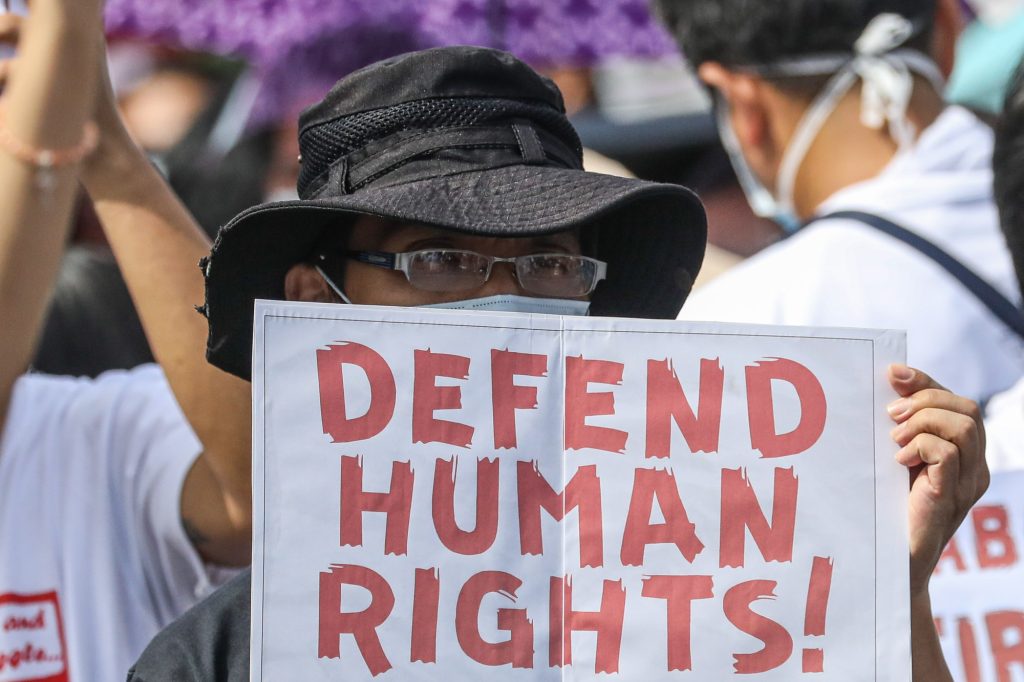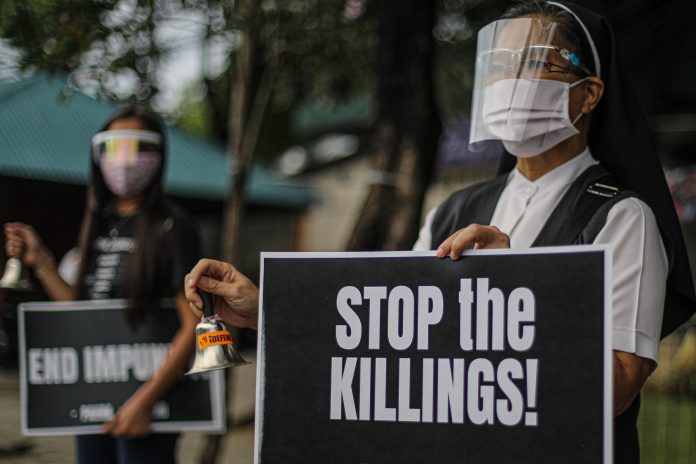Impunity allowed human rights abuses, including extra-judicial killings and the persecution of activists, to thrive in the Philippines, said the latest report of human rights group Amnesty International.
“Lack of accountability continued to facilitate unlawful killings and other human rights violations under the government’s ‘war on drugs’ campaign,” read the report released on Tuesday, March 29.
The report also noted that human rights defenders, political activists and politicians have been subjected to “unlawful killings, arbitrary arrest and detention, and harassment” in the past year.
Indigenous peoples were also the target of attacks by the authorities and unknown assailants, said the report, while “inadequate access to healthcare worsened” as COVID-19 infection rates rose.
The report said extrajudicial executions and other human rights violations continued under the government’s ongoing “war on drugs” as President Rodrigo Duterte “continued to incite violence against people suspected of using or selling drugs.”
The linking of organizations and individuals to communist groups, known as “red-tagging,” resulted in killings and harassment of human rights defenders and political activists, noted the report.
Among the cases cited by the report was the March 7, 2021, killing nine people and the arrest of six others in simultaneous raids against “red-tagged” groups in Southern Tagalog region.
Environmental activists and urban poor community leaders were among those arrested and killed, said the report.
Allegations by the security forces that firearms and explosives were seized during the raids, and that those killed were resisting arrest, were denied by the groups involved.
In a speech given two days before the raids, President Duterte said that he had ordered the police and military to “kill” communist rebels.

In December, the Department of Justice recommended the filing of murder charges against 17 law enforcement officials for the death of labor leader Emmanuel Asuncion during the raids.
The Amnesty International report also noted that attacks persisted against Indigenous peoples and Indigenous peoples’ rights activists.
In January last year, the police chief in the Cordillera region issued an order to “shoot-to-kill” Windel Bolinget, a prominent Indigenous peoples’ rights advocate, if he resisted a warrant for his arrest.
A politically motivated murder charge against Windel Bolinget was dismissed in July, said the report.
On February 28, also last year, unknown assailants shot dead Julie Catamin, the chief of Roosevelt village in Tapaz municipality, Capiz province. She had been a witness in a case relating to a police raid in December 2020 in which community leaders from the Tumandok Indigenous people were arrested and others killed.
On March 3, 2021, masked assailants stabbed and seriously injured Angelo Karlo Guillen, lawyer for the Tumandok community leaders, in Iloilo City.
In February, security forces raided a school in Cebu City in which students from Indigenous communities displaced by armed conflict were living. Seven people, including students, teachers and a community elder, were arrested without warrants and charged with kidnapping and human trafficking. They were detained for three months before the charges were dismissed.









